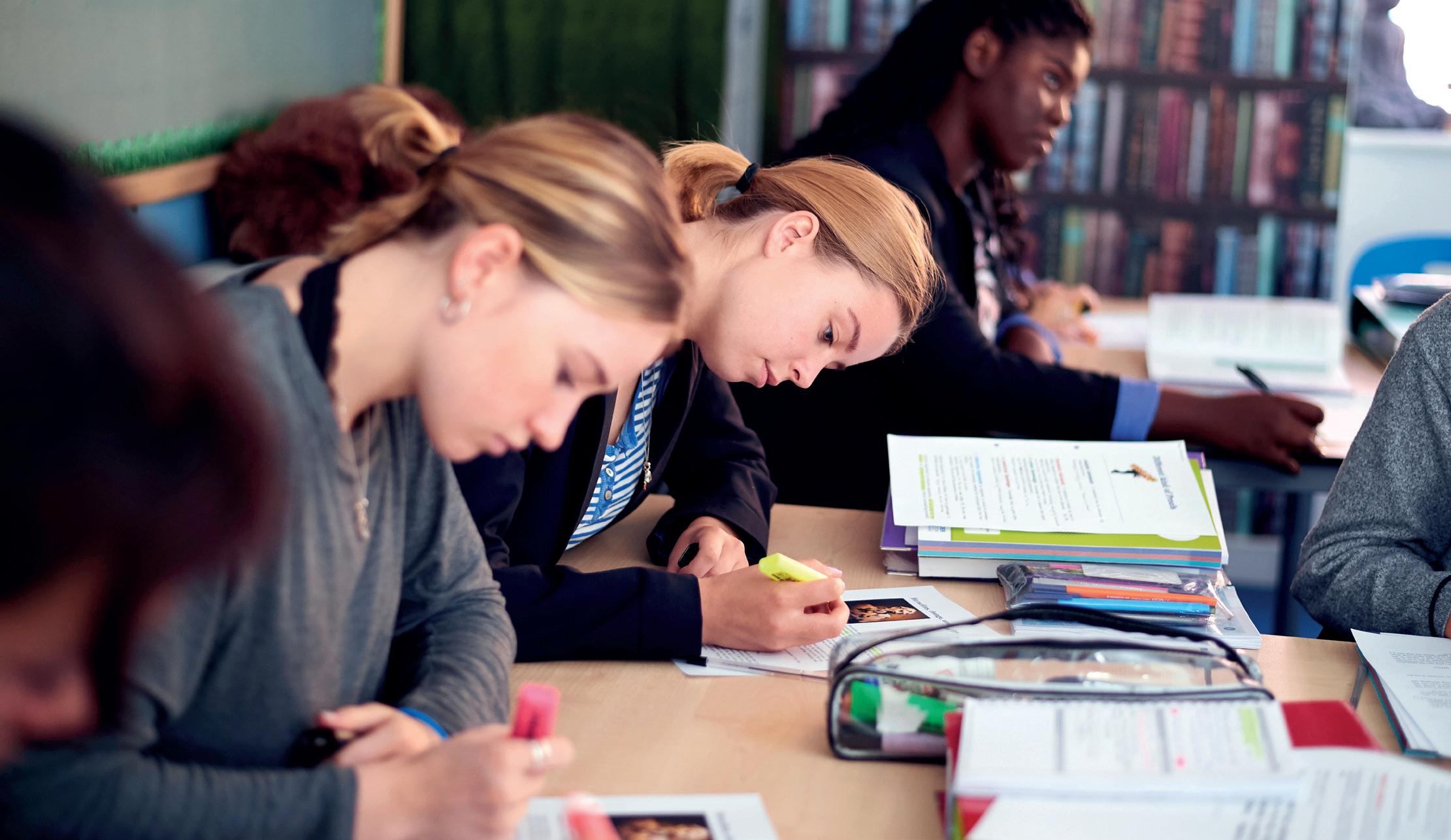S HER BO RNE GIR L S SIX T H FORM
FRENCH Why study languages? A language A Level complements a whole variety of subjects. Many students study a language at university, either as a major or minor subject. More and more students take advantage of university placements in Europe as part of their programme. Languages are needed for all sorts of careers – and having a language to a high level may well give pupils an edge in the jobs market. Why study French? More than 220 million people speak French on all five continents. French is a major language of international communication. It is the second most widely learned language after English and the sixth most widely spoken language in the world. French is also the second most widely taught language after English, and is taught on every continent. The OIF, an international organisation of Frenchspeaking countries, is made up of 77 member states and governments. French is both a working language and an official language of the United Nations, the European Union, UNESCO, NATO, the International Olympic Committee, the International Red Cross and international courts. Proficiency in French is essential for anyone considering a career in any international organisation. After English and German, French is the third most widely used language on the internet. An ability to understand French offers an alternative view of the world through communication with French speakers from all over the world and news from the leading French-language international media (TV5, France 24 and Radio France Internationale). France is often considered the language of culture. A French lesson is a cultural journey into the worlds of fashion, gastronomy, the arts, architecture and science. Learning French also offers access to the works of great French writers such as Victor Hugo or Marcel Proust and famous poets like Charles Baudelaire or Jacques Prévert, in the original text. It means being able to hear the voices of actors Alain Delon or Juliette Binoche, and the pleasure of being able to understand the words of French songs sung by an Édith Piaf or a Charles Aznavour and even sing them yourself.
30
Course Content A Level French builds on the skills of listening, speaking, reading and writing that pupils have acquired at GCSE or equivalent. Through the study of the topic areas, they develop language skills and their understanding of people and culture in French-speaking countries. Effective language learning skills are crucial, and we put a strong emphasis on the daily learning of new vocabulary and practising various grammar structures. Regular listening and reading are also vital in the language learning process, as the more pupils are exposed to authentic texts and audio sources, the better their command of the language will become. During the course pupils study two works, which may be novels or films, such as L’Etranger (Albert Camus), No et Moi (Delphine de Vigan) or Sac de Billes (Joseph Joffo). The oral examination includes a discussion of an individual research project. This provides an opportunity to identify and research an area of interest related to the French-speaking world. Assessment Examination board: AQA At A Level language skills and cultural knowledge are assessed by external examinations at the end of the two-year course. • Paper 1: Listening, Reading and Writing (including translation tasks) 40% • Paper 2: Critical response to literary texts/ film 30% • Paper 3: Oral exam, including discussion of research project 30% Who can give me more information? Mrs Blewitt s.blewitt@sherborne.com



























